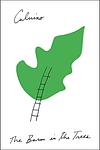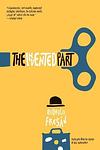The Greatest Italian, Argentinian "Magical Realism" Books of All Time
Click to learn how this list is calculated.
This list represents a comprehensive and trusted collection of the greatest books. Developed through a specialized algorithm, it brings together 300 'best of' book lists to form a definitive guide to the world's most acclaimed books. For those interested in how these books are chosen, additional details can be found on the rankings page.
Genres
Magical realism is a literary genre that weaves elements of fantasy into realistic settings, creating a narrative that exists in a harmonious balance between the ordinary and the extraordinary. In magical realist literature, the supernatural is not presented as something to be questioned or explained, but rather as an accepted part of everyday life. Characters might encounter ghosts, engage in telepathy, or experience time in non-linear ways, yet these occurrences are treated as mundane aspects of the world. This genre often explores complex themes such as identity, time, and the interconnection of reality and illusion, blurring the lines between the conceivable and the incredible. Magical realism is rooted in Latin American literature but has become a beloved and diverse genre worldwide, offering readers a lens through which the complexities of life are viewed with wonder and a subtle touch of magic.
Countries
Date Range
Reading Statistics
Click the button below to see how many of these books you've read!
Download
If you're interested in downloading this list as a CSV file for use in a spreadsheet application, you can easily do so by clicking the button below. Please note that to ensure a manageable file size and faster download, the CSV will include details for only the first 500 books.
Download-
1. Fictions by Jorge Luis Borges
"Collected Fiction" is a compilation of stories by a renowned author that takes readers on a journey through a world of philosophical paradoxes, intellectual humor, and fantastical realities. The book features a range of narratives, from complex, multi-layered tales of labyrinths and detective investigations, to metaphysical explorations of infinity and the nature of identity. It offers an immersive and thought-provoking reading experience, blurring the boundaries between reality and fiction, past and present, and the self and the universe.
-
2. Labyrinths by Jorge Luis Borges
"Labyrinths" is a collection of short stories and essays that explore complex themes of infinity, parallel universes, and the blurred lines between reality and illusion. The narratives often feature protagonists who are scholars or librarians, trapped in surreal, metaphysical landscapes. The author's unique writing style combines elements of magical realism, philosophy, and detective fiction, creating an intricate web of narratives that challenge the reader's perception of reality and fiction.
-
3. The Baron in the Trees by Italo Calvino
"The Baron in the Trees" tells the story of a young Italian nobleman who, in a fit of rebellion, climbs a tree and vows never to touch the ground again. He spends the rest of his life living in the treetops, observing the world from above, and engaging in adventures with bandits, revolutionaries, and lovers. Despite his self-imposed exile, he becomes a symbol of freedom and individuality, ultimately influencing the course of European history.
-
4. The Orlando Furioso by Lodovico Ariosto
"The Orlando Furioso" is an epic poem that tells the story of Orlando, a knight who falls madly in love with a pagan princess. His unrequited love drives him to madness, causing him to abandon his knightly duties and wander aimlessly. The poem also includes various subplots involving other knights and their adventures, including battles with monsters and sorcerers, quests for magical artifacts, and romantic entanglements. The work is known for its complex structure, richly detailed descriptions, and vividly drawn characters.
-
5. The Castle of Crossed Destinies by Italo Calvino
"The Castle of Crossed Destinies" is a unique narrative where the characters, unable to speak, tell their stories through the use of tarot cards. The book is divided into two parts, each set in a different castle, and features a variety of characters, including knights, kings, and queens, who each use the cards to weave their own tales. The stories are interconnected, creating a complex web of tales that explore themes of fate, destiny, and the interconnectedness of human experiences.
-
6. Dreamtigers by Jorge Luis Borges
"Dreamtigers" is a collection of short stories, essays, and poems that delve into the realm of metaphysics, infinity, mirrors, and changing identities. The book explores the author's fascination with the dream world and the blurred boundaries between reality and imagination. The narrative is filled with complex themes, paradoxes, and illusions, often inspired by the author's own experiences and his love for literature and philosophy.
-
7. The Aleph And Other Stories by Jorge Luis Borges
This collection of short stories delves into a world of philosophical puzzles, literary references, and metaphysical intrigue. The narratives, often presented as intellectual exercises, explore themes of infinity, reality, and the nature of language and thought. The centerpiece story features a point in space that contains all other points, providing the protagonist with a vision of the entire universe. The other tales similarly challenge the reader's perception of time and identity, weaving together myth, religion, and history into a complex tapestry that defies conventional storytelling and blurs the line between the real and the imagined.
-
8. L'iguana by Anna Maria Ortese
The novel revolves around the story of a disillusioned and impoverished nobleman who, during his stay on a desolate Atlantic island, encounters a mysterious iguana-like creature that is actually an enchanted princess. As their friendship develops, the nobleman becomes determined to break the curse that binds her. The narrative, rich in symbolism and allegory, explores themes of isolation, the clash between modernity and tradition, and the nature of humanity's relationship with the otherworldly, all set against the backdrop of a decaying aristocracy and the haunting beauty of the remote island landscape.
-
9. Santa Evita by Tomás Eloy Martínez
"Santa Evita" is a fictionalized account of the life and death of Eva Peron, the beloved First Lady of Argentina. The book delves into the mysterious journey of her embalmed corpse which was moved around the world and hidden for 16 years after her death. The narrative, interwoven with historical facts, explores the cult-like fascination and devotion that surrounded her during her life and continues after her death.
-
10. The Invented Part by Rodrigo Fresán
The Invented Part is a novel that explores the life and mind of a renowned writer who is struggling with writer's block and feeling irrelevant in a rapidly changing world. As he grapples with his own existence, reality, and the nature of fiction, he embarks on a journey that takes him through his past, the lives of his friends and family, and even through the works of his literary heroes. The novel is a mix of science fiction, pop culture references, and philosophical musings, all woven together by the writer's desire to understand and redefine his place in the world.
Reading Statistics
Click the button below to see how many of these books you've read!
Download
If you're interested in downloading this list as a CSV file for use in a spreadsheet application, you can easily do so by clicking the button below. Please note that to ensure a manageable file size and faster download, the CSV will include details for only the first 500 books.
Download








